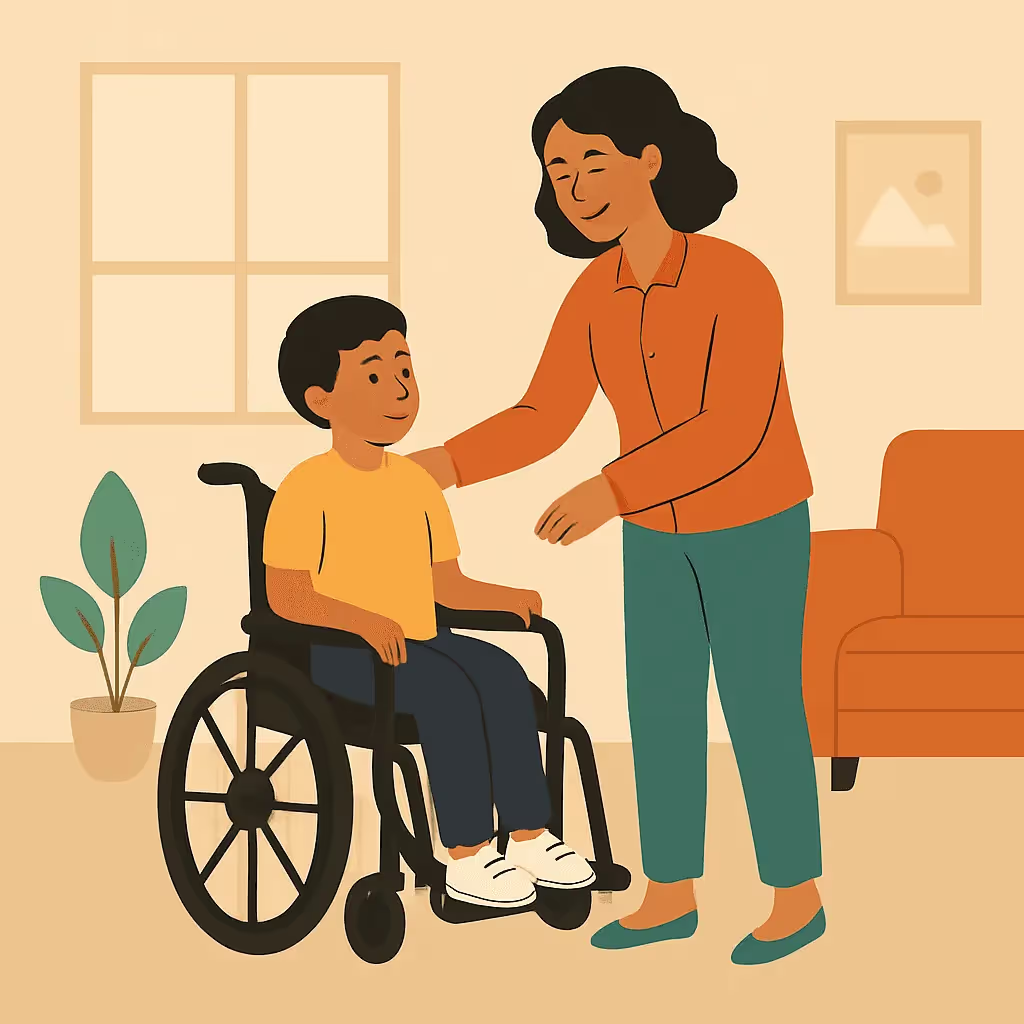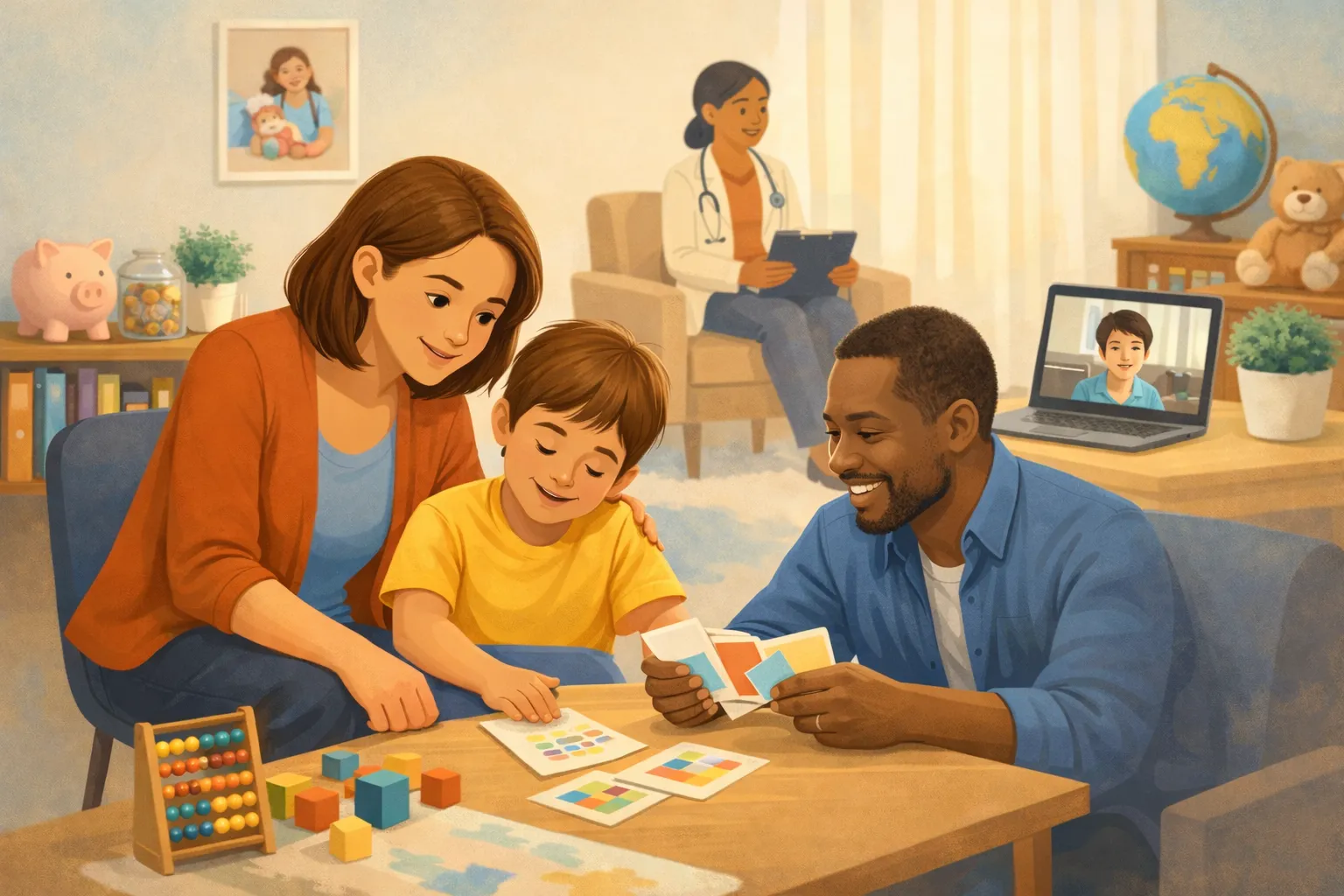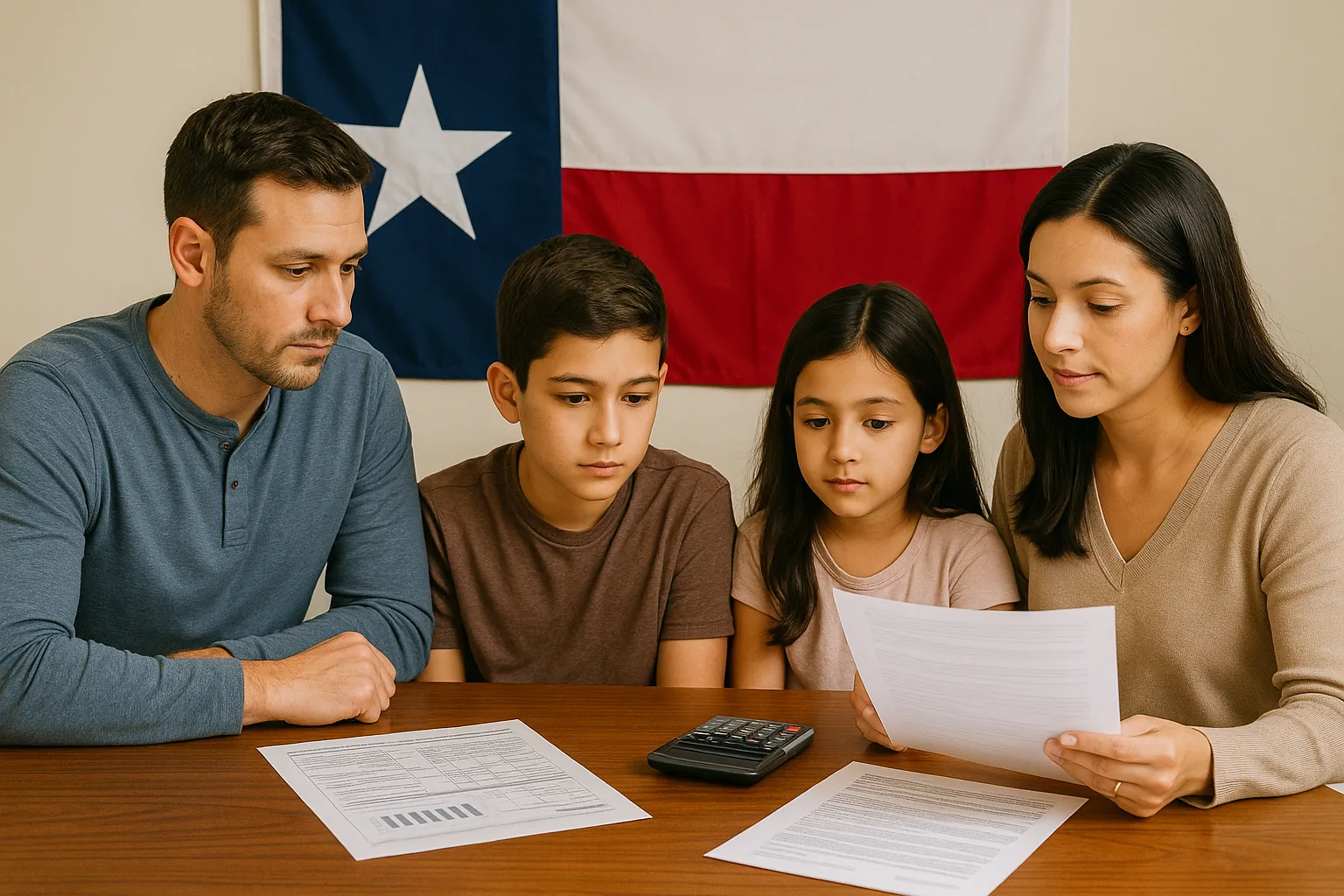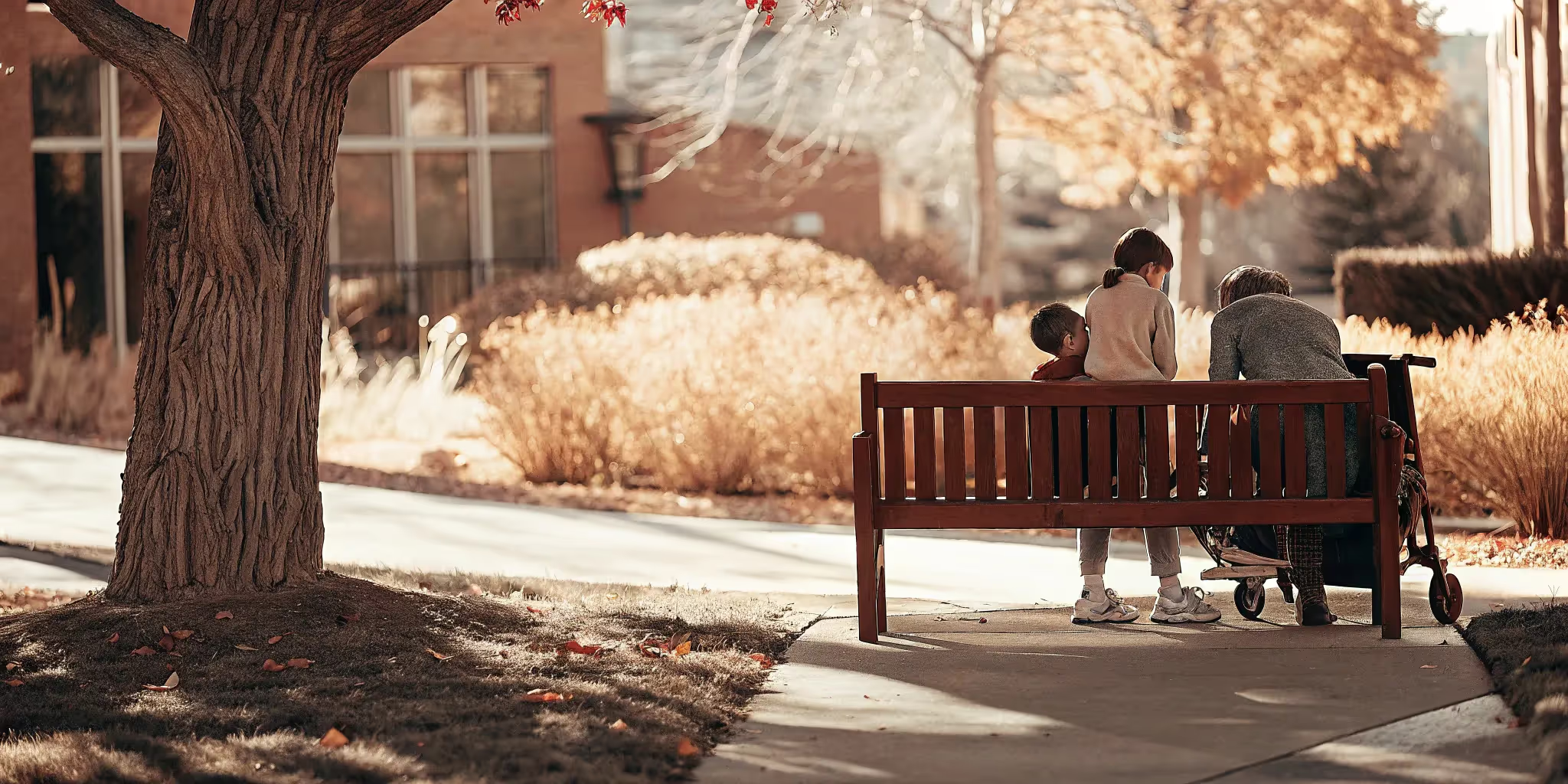How to Get Paid as a Family Caregiver in Colorado: Step-by-Step Guide

How to Get Paid as a Family Caregiver in Colorado: Step-by-Step Guide
Key Takeaways:
- CFC and IHSS are the main Colorado Medicaid programs that pay family caregivers.
- CFC doesn’t require a CNA license, while IHSS lets parents be hired through an agency without one.
- Only medically necessary, age-inappropriate care tasks qualify, such as feeding support, mobility assistance, hygiene care, or medication help.
- Eligibility and paid hours are determined by a case manager, and families must complete Medicaid enrollment, assessments, and a care plan.
If you live in Colorado and care for a child with disabilities, you may be able to get paid for the support you already provide. Through Medicaid programs like Community First Choice (CFC) and In-Home Support Services (IHSS), parents, grandparents, and other family members can be compensated for caregiving- without needing a CNA license or being part of a private agency.
These programs can be confusing at first, but understanding the basics makes the process much more manageable. Here’s a clear breakdown of how they work.
Colorado Medicaid Programs That May Pay Family Caregivers
Colorado offers several pathways for family caregivers to receive financial assistance. For parents of children with disabilities, CFC and IHSS are the primary options. For older adults or adults with disabilities, other Medicaid waiver programs may apply.
Community First Choice (CFC)
Community First Choice (CFC) is a Medicaid benefit in Colorado that allows family members to be paid for providing medically necessary daily care in the home. The program became available to children in July 2025 and is designed for anyone who qualifies for Medicaid and meets the required level of care.
If your child already receives services through a Medicaid waiver such as CES or CHCBS, CFC is typically added during the annual renewal process with your case manager. If they are not on a waiver, you can apply for CFC at any time.
In-Home Support Services (IHSS)
In-Home Support Services (IHSS) is another Medicaid option in Colorado that allows parents of minors to be paid caregivers, as long as they are hired through a certified home healthcare agency. Through IHSS, families can receive support for health maintenance activities, personal care tasks, and certain homemaker services needed to keep the child safe and stable at home.
One of the biggest advantages of IHSS is that it waives the Nurse Practice Act for many tasks. This means parents do not need to become CNAs unless they are providing skilled nursing services, making the program far more accessible for families already managing complex daily care.
What Tasks Qualify for Payment Under CFC or IHSS?
To qualify for paid caregiving, the support your child needs must be medically necessary and go beyond what’s typical for their age. This often includes daily care tasks that require hands-on assistance, monitoring, or specialized routines.
Some common examples include:
- Feeding support (including help for children who cannot self-feed or rely on a G-tube )
- Bathing assistance (when mobility, skin integrity, or safety are concerns )
- Medication administration and reminders
- Transferring, dressing, and positioning
- Personal hygiene, oral care, toileting
- Accompaniment to medical or therapy appointments
All care must be medically necessary, age-inappropriate, and well documented. Your case manager uses a worksheet and assessment tool (like the PAT or PCAT) to determine eligibility and hours.
Who Can Be Paid as a Caregiver in Colorado?
In most programs, parents and other family members can be paid caregivers- with a few important rules:
- Parents of minors can be paid under IHSS, if hired by a certified home healthcare agency.
- Parents cannot be paid under CDASS (which is for adults only).
- The care you provide must be authorized by a case manager and approved by Medicaid.
You do not need to be a CNA unless you're providing skilled nursing care. Programs like IHSS waive the Nurse Practice Act requirement for family members.
How to Apply to Get Paid as a Family Caregiver in Colorado
1. Enroll Your Child in Medicaid
To qualify for CFC or IHSS, your child must be enrolled in Health First Colorado (Colorado Medicaid). Families using Medicaid Buy-In can reference Alpaca’s Medicaid Buy-In Guide for help with enrollment.
2. Meet With Your Case Manager
Your case manager will complete an assessment to determine:
- Level of Care your child needs
- Eligible Services they qualify for
- Authorized Hours of support
- Whether CFC or IHSS is the best fit for your family
3. Choose an Approved Provider Agency
If IHSS is recommended, you’ll select a certified home healthcare agency, such as:
- Colorado Family Caregivers
- Entrust Health
These agencies help with hiring, onboarding, training, timesheets, and payroll.
4. Complete the Care Plan and Documentation
Your care plan is developed together with:
- Your Provider Agency
- Your Case Manager
- Medical Documentation that supports your child’s needs
This plan outlines which tasks you’ll provide, how often they’re needed, and how many hours Medicaid will authorize.
Important Considerations for Parents
Being a paid caregiver can ease financial stress, but it also changes the dynamic of care:
- You may face burnout or isolation without breaks or outside help.
- Medicaid prohibits “duplicative billing” -you can’t be paid for the same task twice under different programs.
- Parents must document care needs clearly and show they’re not just doing typical parenting tasks.
Learn more from the Caregiver Conversations Webinar series, held monthly by Family Voices Colorado.
Support for Families Navigating Colorado Caregiver Programs
Becoming a paid caregiver is more than financial help - it acknowledges the real work families do every day. With the right guidance, programs like CFC and IHSS are much easier to navigate.
If you need help understanding Medicaid options or determining which program fits your child’s needs, Alpaca Health offers clear, family-centered resources, including our detailed Colorado Medicaid Buy-In Guide.
When you're ready to connect with a local BCBA and build a plan that supports your child’s growth, we’re here to help you take the next step.
(H3) Helpful Resources
- CFC Overview from CO Medicaid: hcpf.colorado.gov/community-first-choice-option
- Video: Paid Caregiver Programs: YouTube - Family Voices CO
- Colorado Family Caregivers Website: coloradofamilycaregivers.com
- Medicaid Buy-In Guide: Family Voices
- CFC Colorado FAQs: RHMS
High Quality, Local ABA
If you are ready to partner with a local BCBA and receive the highest quality of care, reach out today!
High Quality, Local ABA
If you are ready to partner with a local BCBA and receive the highest quality of care, reach out today!













